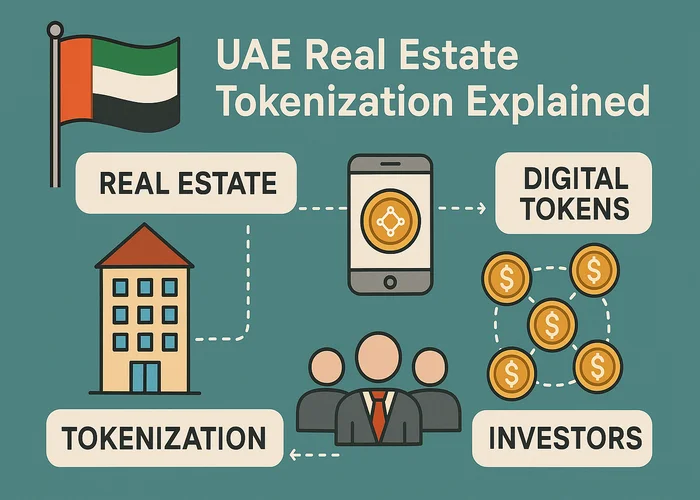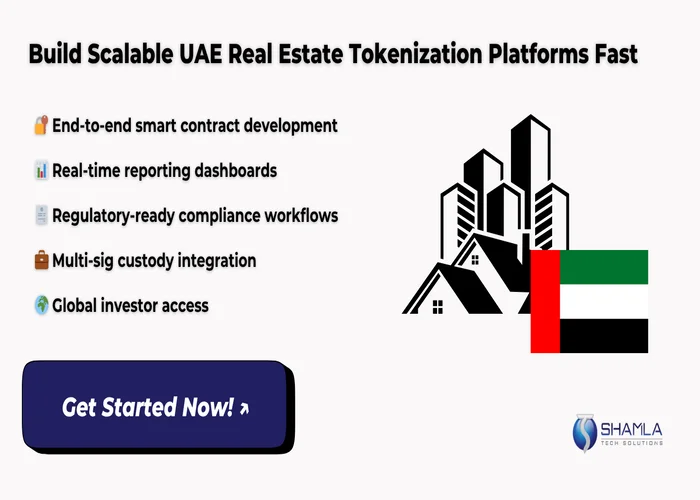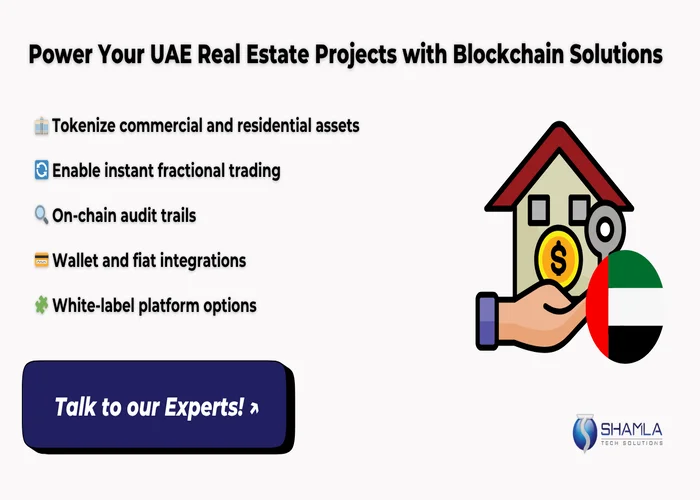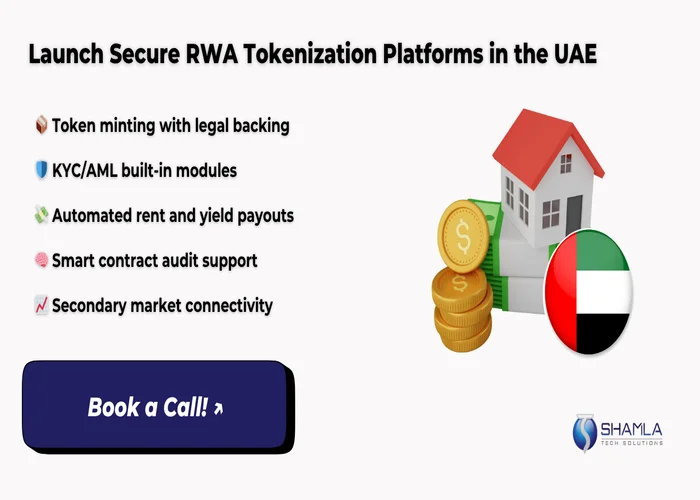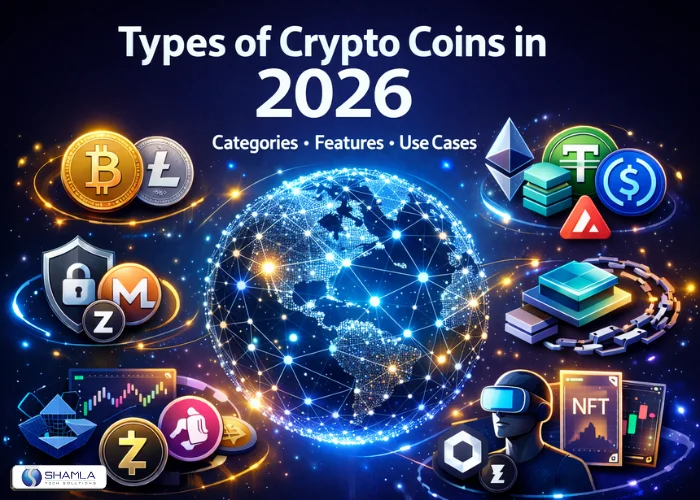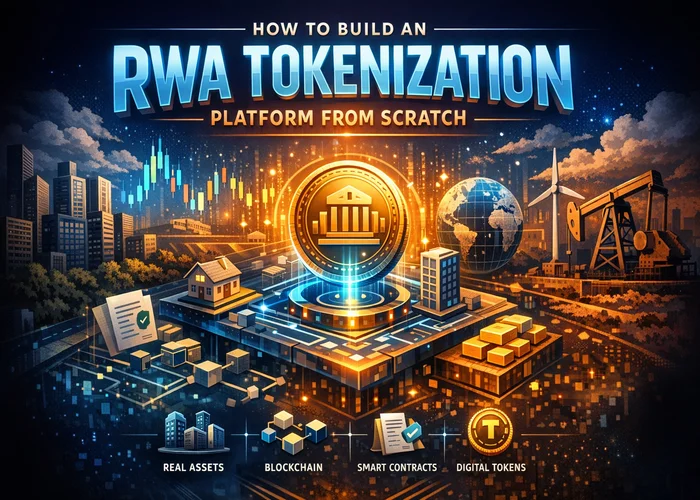In the UAE, leading real estate companies and tycoons are embracing tokenization to trade real estate shares. Regulators in ADGM and DIFC have introduced clear guidelines that safeguard buyers and simplify the approval process. The mature banking system and tech infrastructure here support blockchain use, smart contracts, and digital wallets to cut middle steps and reduce fees.
This combination of strict oversight and advanced platforms makes the UAE a pioneer. In this guide, we’ll explain how UAE real estate tokenization works, walk through key compliance steps, explore emerging trends, and showcase practical examples of tokenized assets in action.
UAE Real Estate Tokenization: The Future of Property Investment
How Tokenization Works in UAE Real Estate
UAE real estate tokenization uses digital ledgers to split property into small units. Each unit is a token on a blockchain. Investors buy tokens through smart contracts that run without middle agents. The system stores tokens in digital wallets that track ownership and rights. When someone buys or sells, the ledger updates in real time. This model makes property shares more liquid and easier to trade. Clear rules and secure networks ensure token safety and record accuracy.
By using tokenization on blockchain, developers turn hard-to-sell property into trade-ready units. UAE real estate tokenization offers a new way to handle deeds, manage rentals, and share income streams in a transparent, coded system. It connects investors worldwide without third-party paperwork or banks.
UAE's Financial Regulatory Framework: ADGM, DIFC & SCA Overview
Regulators in the UAE have set clear rules for token trading. ADGM and DIFC frameworks define how tokens link to property deeds. The SCA issues guidelines for digital securities and smart contracts. Firms offering Real World Asset Tokenization Services must register and meet capital rules. Those rules cover KYC checks, custody of tokens, and audit trails. Platforms must list security tokens on approved exchanges.
This approach helps protect investors from fraud and system breakdowns. It also boosts confidence among overseas buyers and banks. Clear oversight helps developers and users follow best steps. UAE real estate tokenization is expanding within this secure framework. Ongoing updates ensure rules match fast tech changes and global standards. Banks and law firms review code and contracts.
Fractional Ownership and Market Access
Fractional ownership means splitting property into shares that any investor can buy. In the UAE, this model lowers the money barrier for real estate. Investors purchase tokens that stand for small stakes in buildings. These tokens are part of tokenized assets held on a safe ledger. Owners earn rent and value gains based on share size. Secondary markets allow quick trades without big fees or banks. This flow lets more people join large deals.
Trades clear in seconds, thanks to smart contracts checking rules automatically. The result is a fair, open market for everyone from small savers to big groups. UAE real estate tokenization expands access and spreads returns across more users. Investors get clear reports on each token.
Key Advantages: Liquidity, Accessibility, and Automation
Token markets in the UAE run 24/7 online without bank hours. Traders buy or sell shares in seconds. This high speed shows the benefits of real estate tokenization by cutting wait times and fees. Anyone with a verified wallet can join, boosting accessibility beyond local buyers. Automation through smart contracts forces payment and rights checks before deals close.
Platforms can tie into decentralized finance (DeFi) tools for lending, staking, or yield farming. That adds more uses for each token. Clear code logs every step, so audits take minutes instead of days. UAE real estate tokenization uses these advantages to make property trade fair, fast, and open to all. Investors enjoy cash flow and control.
Role of RWA Tokenization in the Ecosystem
Real World Asset Tokenization connects tangible assets to digital tokens. In the UAE, this method powers new investment models. RWA tokenization in real estate investment lets buildings issue debt or equity tokens tied to rent or sales. Investors see clear returns recorded on ledgers. This approach shows key benefits of real estate tokenization by giving price updates in real time.
Platforms handle token minting, trading, and compliance checks under one roof. Smart contracts release funds automatically when conditions meet. UAE real estate tokenization based on RWA tech helps market growth and stable yields. The result is a smoother link between real property and online markets. Investors trust coded records.
RWA Tokenization in Fixed-Income Investing in UAE
1. Tokenized UAE Real Estate as a Fixed-Income Alternative
UAE real estate tokenization lets investors buy digital claims on buildings. This form of real world asset tokenization breaks property into yield tokens. Each token pays a share of rent or sale gains, matching fixed‐income investing goals. Tokens trade on open platforms with coded rules, cutting out banks and lawyers.
Owners store tokens in digital wallets, and smart contracts automate payouts on schedule. Clear ADGM and DIFC guidelines protect token holders. Property cash flows move on secure ledgers, giving steady returns without full ownership. This shift turns hard-to-sell real estate into trade‐ready, bond-like units in global portfolios.
2. Rental Income and REIT Tokenization Models
Token platforms in the UAE offer yield-bearing models tied to property. Smart contracts automatically channel rental income into token wallets. Real world asset tokenization powers this by linking tokens to cash flows from apartments or offices. REIT tokenization splits trust units into tokens, giving small investors access to large portfolios.
These models suit fixed-income investing by offering regular payouts. UAE real estate tokenization adds transparency through public ledgers: users see rent records and fee schedules on dashboards. Automated ledgers trigger payments at set intervals, making property a steady digital income source.
3. Comparison with Traditional Fixed-Income
In traditional fixed-income investing, banks issue bonds with set rates and terms. Tokenized property shifts this by minting tokens tied to assets on ledgers. Real world asset tokenization replaces paper certificates with digital tokens that trade 24/7. UAE real estate tokenization adds an asset layer beyond corporate debt i.e., tokens representing slices of actual buildings.
Investors buy tokens, not debt, and receive rent or sale proceeds. Transaction times drop from days to minutes, and fees shrink as smart contracts cut out bond houses. Market access widens since tokens need lower capital, and payouts reach wallets directly.
These models suit fixed-income investing by offering regular payouts. UAE real estate tokenization adds transparency through public ledgers: users see rent records and fee schedules on dashboards. Automated ledgers trigger payments at set intervals, making property a steady digital income source.
4. Evolution of Tokenized Bonds
Tokenized bonds have grown in the UAE, moving debt to ledgers. Developers now issue property-backed notes as tokens. This shift blends bond terms with coded rules. Blockchain in bond markets ensures each transfer records instantly. Real world asset tokenization secures bonds with property deeds. Smart contracts handle coupon and principal flows, reducing errors. This suits fixed-income investing by providing coded payment schedules. Current trends show:
- Cross-border bond trades
- Instant settlement
- Lower underwriting fees
As tokenized bonds evolve, issuers explore convertible tokens and dynamic yield models under UAE’s clear rules.
5. Institutional-Grade Platforms & Custody Models
Professional platforms in the UAE manage token lifecycles and compliance. They offer custody solutions built for real world asset tokenization, storing tokens in secure vaults. These systems support fixed-income investing by tracking interest accrual and enabling token swaps. Custodians run continuous audits and handle KYC checks.
Platforms integrate APIs to link wallets, exchanges, and reporting tools. Automated alerts notify holders of upcoming payouts. Users access live dashboards showing token balances, yield rates, and transaction logs. This setup gives both issuers and holders a single view of token health and revenue flow.
6. Institutional Adoption and Risk Management
Leading banks and funds now join the UAE’s token market. Institutional investors in tokenized assets demand strong controls and clear audits. Real world asset tokenization provides immutable proof of token backing. This appeals to fixed-income investing strategies that need stable returns. Risk teams run scenario tests and stress models on token portfolios.
Platforms produce proof-of-reserve reports to confirm token supplies match property values. Embedded governance rules allow exit clauses for market shocks. As institutions grow token holdings, the UAE’s real estate sector gains deeper capital pools and stronger market stability.
Platforms integrate APIs to link wallets, exchanges, and reporting tools. Automated alerts notify holders of upcoming payouts. Users access live dashboards showing token balances, yield rates, and transaction logs. This setup gives both issuers and holders a single view of token health and revenue flow.
Blockchain & Security Tokens: Backbone of UAE RWA Market
1. Blockchain Enables Clear Records and Fast Processes
Blockchain in bond markets gives every investor a real-time view of token flows. UAE real estate tokenization puts building shares on a shared ledger. Each trade logs instantly, so firms cut out middle checks and slow paper trails. Platforms built for tokenization on blockchain handle title transfers with coded rules.
Smart nodes verify trades without human steps. Fees drop because systems run themselves. Data stays safe across back-up nodes. This model reshapes bond markets by making debt and property units equally clear. Firms use this setup to record loans, rent splits, and sales in one shared network, no extra ledgers needed.
2. Smart Contracts Drive Property Deals
Smart contracts power each UAE token sale and rent payment. They hold funds in code and release them when rules match. For security tokens, contracts check investor IDs, cut out paper, and set payout dates. Builders write simple code to cover:
- Fund transfers on closing
- Rent split schedules
- Buy-back or resale clauses
This shifts work from banks to scripts. Automated steps finish in seconds. That level of automation suits blockchain in bond markets too, where bonds self-pay interest. Property deals run without lawyers signing stacks of forms, yet meet strict UAE rules.
3. Clear UAE Rules on Security Tokens
Regulators in ADGM and DIFC define how security tokens link to assets. Laws state that each token maps to a legal share in a building. Rules require platforms to register, run audits, and hold reserves. Compliance checks ensure every token matches a real deed. This gives investors clarity missing in other markets.
UAE real estate tokenization thrives under this guardrail. Regulators update guidelines so code and contracts match law texts. That cuts confusion over token rights and payouts. Firms can launch tokens knowing they meet local rules. Investors gain confidence that the court and code agree on each token’s value.
4. DeFi Links for Extra Yield
Platforms now tie property tokens to decentralized finance (DeFi) pools for extra income. Owners lock security tokens as collateral in DeFi contracts to borrow stablecoins or stake for interest. They can:
- Use tokens as loan backing
- Earn yield by staking in liquidity pools
- Swap tokens in defi swaps
This blend of blockchain in bond markets and DeFi tools creates new yield paths. Token holders keep building shares yet tap DeFi markets for cash. Automation handles margin calls and fee splits in code. That adds flexibility to fixed-income investing with UAE real estate tokenization.
5. Risks and Simple Fixes
Even with clear rules, token systems face risks in bond markets. Smart-contract bugs, exchange hacks, and code gaps can halt trades or lock funds. For security tokens, risks include:
- Code errors in payout logic
- Exchange outages
- Unchecked wallet key loss
To fix these, platforms run audits, hold emergency reserves, and set manual override keys with multisig wallets. They mirror real deeds with off-chain records to back token values. Regular stress tests on blockchain in bond markets scripts reveal weak spots. These steps cut hazards and keep token trades steady.
How Institutional Investors Are Embracing UAE RWA Tokenization
Surge of Institutional Capital in UAE Real Estate Tokenization
Large banks and funds are channeling money into token markets via RWA (Real World Asset) tokenization. They see real yield in digital property shares under UAE real estate tokenization rules. Institutional investors in tokenized assets gain access to rental income streams coded in smart contracts.
Full transparency in transaction logs and audit trails attracts capital seeking stability. Advanced platforms link token performance to property deeds, lowering risk. Funds tap token markets to balance portfolios with fixed-income investing features. This trend reflects a shift from bonds to token assets under clear ADGM and DIFC frameworks that support DeFi integration.
Robust Custody and Compliance Frameworks
Custody providers use multi-layer security to hold tokens. Institutional investors in tokenized assets rely on secure vaults and insurance to guard holdings. RWA (Real World Asset) tokenization demands proof that each token matches a property deed. Compliance teams run real-time checks on KYC, AML, and transaction histories on ledgers.
Auditing solutions connect code logs with legal records to verify balances. Platforms integrate automated reporting tools for regulators and stakeholders. This process gives confidence to heavy investors. Firms offering Real World Asset Tokenization Services must meet capital and tech requirements under UAE real estate tokenization law.
Pilot Programs and Institutional Use Cases
Global banks and insurance groups test token deals in Dubai. Pilot programs link commercial towers to blockchains, letting investors trade small stakes. Institutional investors in tokenized assets commit capital in controlled trials under ADGM sandbox. They monitor yield, token liquidity, and compliance. Developers and regulators gather data on performance and security.
Examples of this include a mixed-use tower issuing security tokens with quarterly rent payouts, and a hotel group tokenizing room revenue. These cases guide broader launches. Each pilot proves RWA (Real World Asset) tokenization can scale in real markets. This model reduces entry barriers and speeds rollouts for future projects.
Role of Real World Asset Tokenization Services
Service firms in the UAE now offer end-to-end Real World Asset Tokenization Services. They design platforms that handle token creation, sales, and secondary trading. Compliance modules check every investor and transaction. These firms support fixed-income investing by coding rent splits and bond-like payout schedules.
They build smart contracts, digital wallets, and API links to exchanges. Institutional investors in tokenized assets use their white-label solutions to launch private funds. Providers also integrate decentralized finance (DeFi) options for yield boosting. This full package supports UAE real estate tokenization goals, allowing sponsors to raise capital fast and stay ready for audits and compliance checks.
Build a RWA Tokenization Platform with Shamla Tech
Shamla Tech is a top RWA tokenization development company specializing in UAE real estate tokenization. We build platforms using blockchain in bond markets to issue security tokens and serve institutional investors in tokenized assets. Our team enables real world asset tokenization across property classes, handling compliance and smart contracts for RWA tokenization in real estate investment.
Shamla Tech’s solutions power seamless trading of digitized equity and debt instruments with full KYC/AML, multi-sig custody, and DeFi integration. Trusted by developers and funds, we’ve delivered UAE real estate tokenization platforms for clients in UAE and globally with proven scalability and robust security.
Why is Shamla Tech the best company for Real Tokenization Development in UAE?
- Shamla Tech’s engineers write smart contracts tailored for UAE real estate tokenization, ensuring secure issuance of security tokens with built-in compliance checks, on-chain audits, and automated KYC/AML integration for launches.
- Our platform integrates multi-sig custody solutions and DeFi protocols, giving institutional investors in tokenized assets instant collateral management, automated yield options, reporting dashboards, and secure API links to major exchanges.
- With projects delivered for clients in UAE and globally, Shamla Tech ensures platform scalability, high throughput, robust modular architecture, 24/7 monitoring, versioned upgrades, and seamless integration with legacy finance systems.
Our legal team maps ADGM, DIFC, and SCA frameworks into code, automating governance, post-trade reporting, rigorous cross-border compliance, detailed audit-ready logs, and streamlined token offering processes for real estate assets.
Conclusion
UAE real estate tokenization sets the pace with clear rules and strong partners. Its finance hubs combine deep tech, legal guardrails, and liquid markets. This setup showcases benefits of real estate tokenization. Developers and investors gain secure, fast access to property stakes. Now is the ideal moment to join today.
Partner with Shamla Tech to build your token platform faster. Our experts code security tokens and smart contracts under UAE rules. We manage blockchain in bond markets integration, wallets, KYC/AML, and multi-sig custody. Get full support for deployment, audits, and upgrades. Tap our tech to unlock property investment innovation today.
Ready to launch your real estate tokenization platform in the UAE?
Contact us to build a secure, compliant, and scalable Real Estate Tokenization platform today!

